Dogs and bones go hand in hand, but not all bones are safe for your dog to eat. In fact, many of them can be downright dangerous.
With the holidays fast approaching, it is important to know what bones to keep away from your dogs and what to do if your dog eats something it shouldn’t.
What Problems Can Cooked Bones Cause?
Cooked bones of all types should be kept away from dogs. Because they are cooked, they are more likely to splinter and cause internal damage. Hollow bones, such as chicken and turkey bones, are especially susceptible to splitting, but cooked bones of all varieties can be dangerous if ingested.
The following are possible dangers associated with eating cooked bones, according to VCA Animal Hospitals:
- Broken teeth
- Injuries to the mouth and tongue
- Choking
- Injuries to the stomach and intestinal lining
- Blockages in the small intestine or colon
“[Cooked bones] can scratch the esophagus, they can scratch the gastrointestinal tract, they can even cause a penetrating injury, which is one of the worst things we can see from them,” Dr. Brian Carson, DMV, who practices in Virginia, said in an interview with The Spruce Pets.
How Can I Prevent My Dog From Eating Cooked Bones?
The easiest way to keep cooked bones away from your pets is to keep them away from the kitchen, the dining room, the trash, or anywhere a cooked bone might be.
This can be hard for dogs that are used to having free roam of the house, so another strategy is to exercise caution. Keep an eye on the dog, keep the trash can lid secure, and make sure your family and guests are aware that they should not feed the dog table scraps.
“Make sure that everyone, all the guests, understand the potential dangers of feeding certain foods, especially cooked bones, and to know what to avoid and what’s okay,” Carson said.
What Should I Do If I Suspect My Dog Ate a Cooked Bone?
No matter how cautious you are, there’s still a chance your dog can get ahold of a cooked bone. If your dog has eaten a cooked bone, or you suspect that they have, immediately consult a veterinarian. Let them know what kind of bone your dog consumed, if you are aware. The vet might advise you to bring your dog to an emergency vet, force them to vomit, or take another course of action.
Signs of discomfort you may notice if your dog ate a cooked bone include vomiting, nausea, lethargy, drooling, panting, and pacing, according to Carson. Monitor your dog for these behaviors if you suspect it ate a bone, and call your vet if you are not sure.
What Other Human Foods Should I Keep Away From My Dog?
During the holidays, it is important to know what other human foods can be harmful to your dog. The U.S. Food and Drug Administration lists the following foods as being being particularly dangerous:
- Raw meat
- Grapes, raisins, and currants
- Fried and fatty foods
- Moldy foods
- Onions, garlic, and chives
- Salty snacks, in large quantities
Chocolate and macadamia nuts, which can be found in some holiday desserts, can also be harmful.
If you want to give your dog a special Thanksgiving treat, Carson recommends small quantities of cooked turkey, plain green beans, and pumpkin puree (not pumpkin pie or pumpkin pie filling).
Are Raw Bones OK?
Raw bones and antlers are generally more safe than cooked bones, but many vets recommend still exercising caution, as these bones can cause damage to teeth, choking, or other issues.
Carson recommends making sure to appropriately size raw bones for dogs so that they are less likely to swallow them whole, and monitoring them while they are chewing.
“Personally, I don’t recommend [raw bones] because they can still break off larger chunks and swallow larger chunks,” Carson said. “So when using any type of toy or bone that’s more stimulating, we want to make sure we’re sizing it appropriately for the dog. If you give a 60 or 80-pound dog a piece of rib, they’re more likely to swallow that whole than a chihuahua who can probably not fit his whole face around it."
Raw foods also carry an increased risk of bacteria, such as salmonella or E.coli, which may be harmful to your dog or people in the home.
If you suspect your dog has eaten a cooked bone or something else they shouldn’t have, consult your vet. You can also reach the ASPCA Animal Poison Control Center at 888-426-4435.

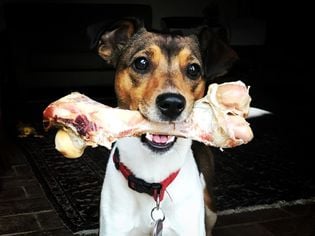
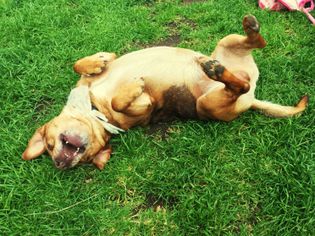
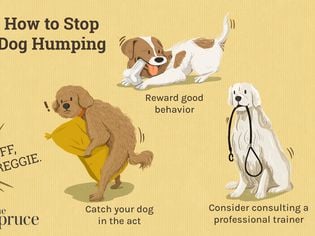
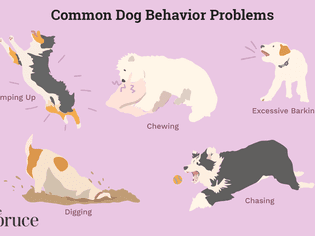
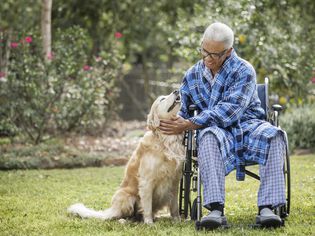
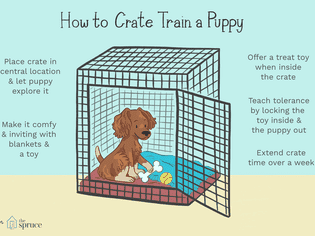
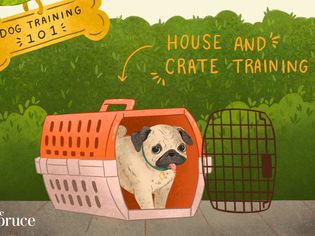
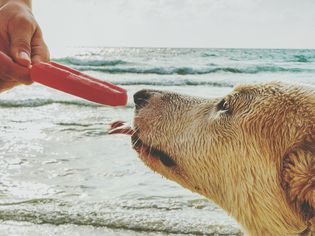
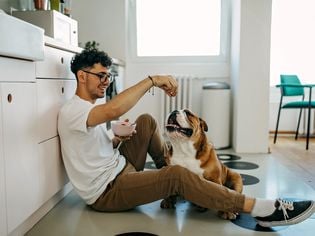
Comments on " Why You Should Keep Cooked Bones Away From Your Dog This Holiday Season" :